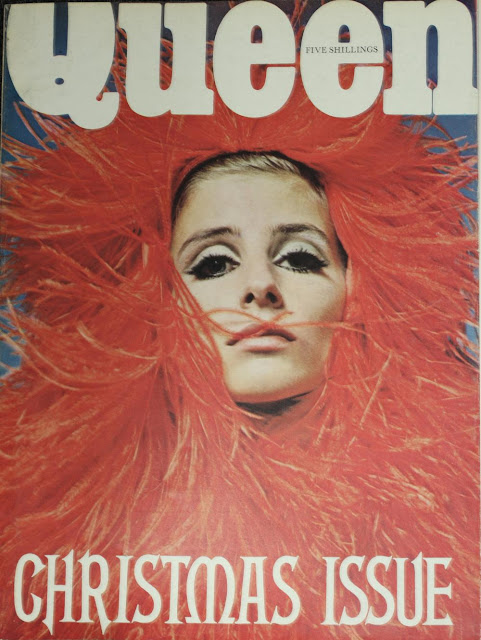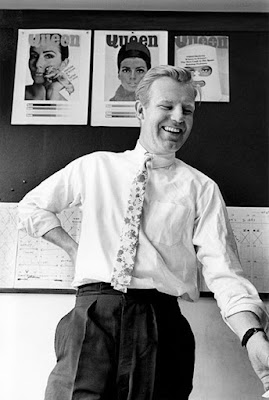I had fun writing this Pitchfork piece about Rock and the Royals - it's a kind of shadow history of "postcolonial melancholia" and entropy in the U.K., looking at the way British pop represented a new kind of national identity and pushed that image internationally almost in rivalry with the Queen and her clan. The Blitz Generation, Thatcher, Blair, and Brexit appear as well as the obvious (and less obvious) references - whimsical, surreal, iconoclastic - to Elizabeth and the Royal Fam that pop up in song across six decades of U.K. history.
In the piece, I allude to the notion of the Sixties youthquake - an eruption of newness and nowness sweeping the old order away. How irrelevant the Royals were to all that irreverence. But then I remembered a funny thing. One of the main places that you could read about all the fab trends - Mary Quant, Carnaby Street, the mods - was a magazine called Queen. They published the clued-up commentary of the very young Nik Cohn - he did a column called "Pop Scene".
What really surprised me was that Queen publisher Jocelyn Stevens was one of the investors who financed the pirate radio station Radio Caroline. Indeed initially, the station operated out of the Queen office (although the actual broadcast signal issued from a ship named Caroline outside of British territorial waters). Stevens agitated against the idea, promoted by an official report, that there was no demand in the U.K. for commercial radio and was keen to prove the government wrong.
Towards the end of the 1960s, Queen was sold to Harper's Bizarre and merged as Harper's & Queen. Stevens carried on being involved in the newspaper business and eventually was given a knighthood by the actual Queen in 1996.




No comments:
Post a Comment
Comment away